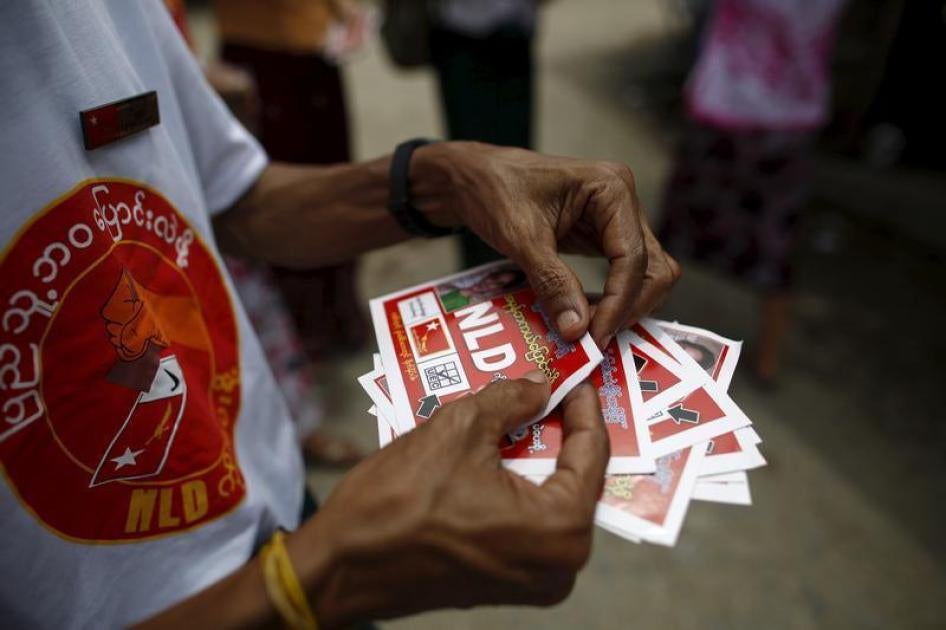With a little more than a month to go before Burma’s national elections, military aligned militia units are casting a dark shadow over the polls. These proxies, known as Pyithu Sit (People’s Militias) and Neh San Tat (Border Guard Forces) are intimidating voters in Burma’s ethnic-minority borderlands and are stopping candidates from campaigning. This exacerbates the problems in some regions, where ongoing fighting between government forces and ethnic armed groups will prevent voting from taking place.
A national Upper House member of parliament, Zakhung Ting Ying, of the ruling Union Solidarity and Development Party (USDP), last week informed opposition candidates not to canvas in his constituency in Kachin State, claiming in a letter “the area is not yet under the government’s reform program” – and thus off-limits for voting. A former communist guerilla and a suspected arms dealer, Ting Ying commands Border Guard Force units operating under Burmese army supervision. These units transformed into a Neh San Tat in 2009 from the National Democratic Army-Kachin, which has long been a player in the local drug trade.
Also last week, militias in northern Shan State along the border with China have ordered voters not to check their names on voter-list displays. In Shan State, the Shan State Army-South (SSA-S) insurgent group has announced that recent fighting between their forces and the Burmese army means that voting may not take place in an estimated 16 townships.
Pyithu Sit and Neh San Tat often sub-contract local rackets that involve the drug trade, logging, mining, as well as operating checkpoints that extort money from travelers. There may be hundreds of such units, many in Shan State, that have spread across ethnic regions over the past 20 years. These units are often used to fight ethnic non-state armed groups in coordination with the army.
By using their militia proxies to shut down voting in some areas, the military, with a guaranteed 25 percent seats in parliament, bolsters its standing in parliament.
There are already at least a dozen seats where elections will not be held because of active armed conflict and instability. As a consequence, seats from those townships will not be filled. More areas may be added to the list because of militia intimidation.
While continued fighting that prevents voting in some areas is a reality, the military is using militia abuses to its own advantage at the expense of Burmese democracy. Militias are privileging their own electoral interests over the voting rights of rural people, especially ethnic minorities, and as proxies, serving to perpetuate the power of the military and the continued repression and rights abuses that come with it.








